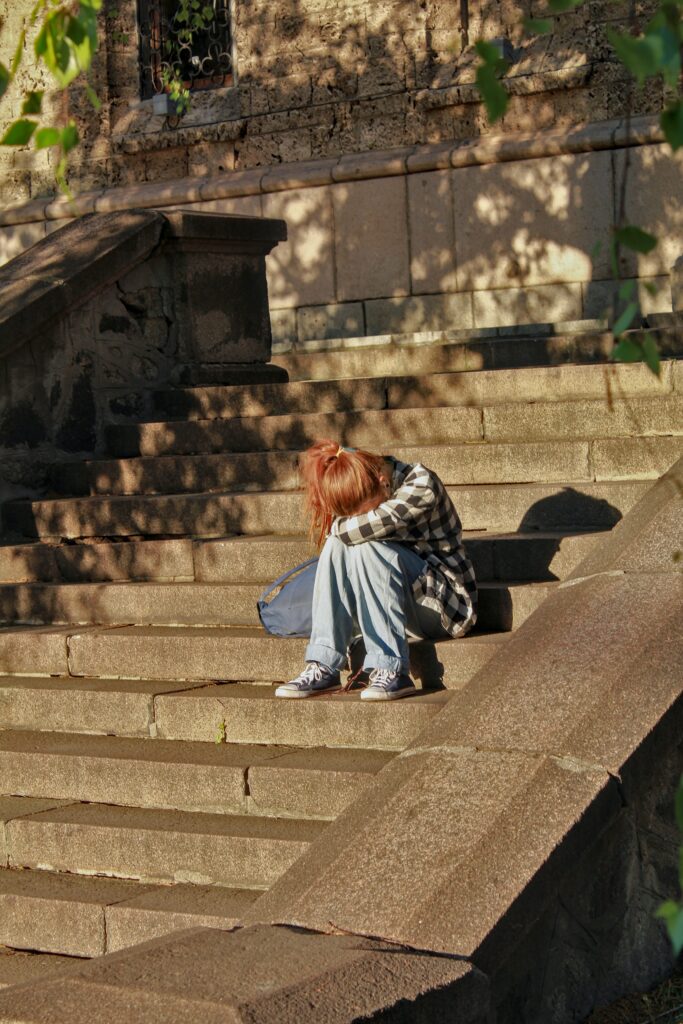Part 1: Understanding Students with Eating Disorders

Some of your students, right now, have an eating disorder. Even more of your students have dangerous food habits. And most of your students have body image issues. These are facts, based on national statistics in the United States.
9 out of every 100 people will have an eating disorder in their lifetime. 42% of first grade girls want to be thinner. 81% of ten year olds (both boys and girls) are afraid of being “fat.” 46% of 9-11 year olds are “on diets.” 35-57% of adolescent girls have been involved in crash dieting, fasting, self-induced vomiting, or laxatives. 91% of young women in universities attempt to control their weight with dieting. Whether we see it or not, eating disorders and disordered eating is all around us in our classrooms.
To get a better idea of what it’s like to navigate school while struggling with an eating disorder, I interviewed a recent high school graduate named Sadie (class of 2021) on her experience with going to school while battling a life threatening eating disorder.
Question: What is an eating disorder?
Sadie’s Answer: “It’s an unhealthy obsession with food. It’s using food to cope with how you are feeling. You cannot control all of the things in your life, but you can control what you eat, how you exercise and have control over your body. I want to emphasize the “control” aspect of eating disorders. Lots of people with eating disorders are perfectionists and it’s very important to them to have control over their bodies, their eating, and their habits.”
Question: What is it like to battle an eating disorder?
Sadie’s Answer: “The only word I can think of is AWFUL. I wouldn’t wish it on my worst enemy. It’s awful. It has so much control over you, and even if you really, really want to get help, you feel like you can’t, you’re trapped. It’s like being in one of those soundproof foam rooms, and the people you love are right outside. You are looking for the door to get out, but you can’t find it. And maybe you even find the door but there is no doorknob. Or you finally find the door and the door knob but it’s locked and you don’t have the key. Trying to recover feels like that. At the end of each day, you are just so tired. You face your biggest fear six times a day (eating), and you’re also trying to navigate the world and school while you do it. Eating disorders are addictive, and it’s exhausting to move away from it.”
Question: Describe your school experience as you juggled your eating disorder and schoolwork.
Sadie’s Answer: “Basically there was no school experience– my eating disorder messed with my memory. I went to Chile on a school trip, but I can’t remember it other than what I ate. It was hard to even try at school because I was so preoccupied by my eating disorder because nothing else mattered to me when I was very sick.
I took chemistry when I was the most sick– it was so hard, I barely passed the class. My chemistry class was sometimes right before or right after lunch, which meant that I would have urges to workout, run, or purge throughout class. It was hard to focus on learning chemistry. In other classes, I would read cookbooks and look at pictures of food on my computer. It was incredibly difficult to think about anything else other than food.”
Question: What was it like to take a test while you were sick?
Sadie’s Answer: “I had a science test one morning that I really tried to study and prepare for. Before school, I had to eat breakfast (something that is very hard). I had oatmeal, but I was so anxious about it that I threw it up in the car. It got all over me. I told my teacher that I had a hard morning and I asked to take the test at another time, but I was told I had to take the test that class period. I felt awful taking the test, and I couldn’t focus at all. I smelled bad, I was trying to comprend breakfast, thinking “I ate so much” and “I didn’t need to eat that much,” and “I have to eat lunch soon, now I am anxious about both meals,” and all the while I am trying to take my science test. It’s really hard.”
Question: What do you wish your teachers knew when you were very sick with your eating disorder in high school?
Sadie’s Answer: “I wish they knew that I was trying my best. I knew I was trying my best, but I couldn’t do my best. All of my energy was going into my eating disorder and my behaviors. I really wanted to keep my grades up and I really wanted to be a good student, I just didn’t have the tools or the energy to do that at the time. I was going through something so hard, but I worried my teachers just thought I was lazy. I was trying my best.”
How did your teachers and school respond when they were told about your eating disorder?
Sadie’s Answer: “Before we even told anyone at school, one of my teachers emailed my mom. He said “Sadie is going through something, and I can tell that something is wrong. I think something might be going on.” I remember that. I appreciated it because it went beyond a quick conversation in the hallway and never followed up. He saw that I was really struggling and reached out to help. Actually, most of my teachers were willing to work with me and take things off my plate, especially when I left school to go to treatment. I wasn’t able to do anything other than fight my eating disorder, so that was really helpful.”
Thank you, Sadie, for the eye-opening insight on what it’s like to be a student with an eating disorder at school. Teachers are always trying to better understand our students, and Sadie’s story can help all educators as they teach, help, and support their students with eating disorders.

